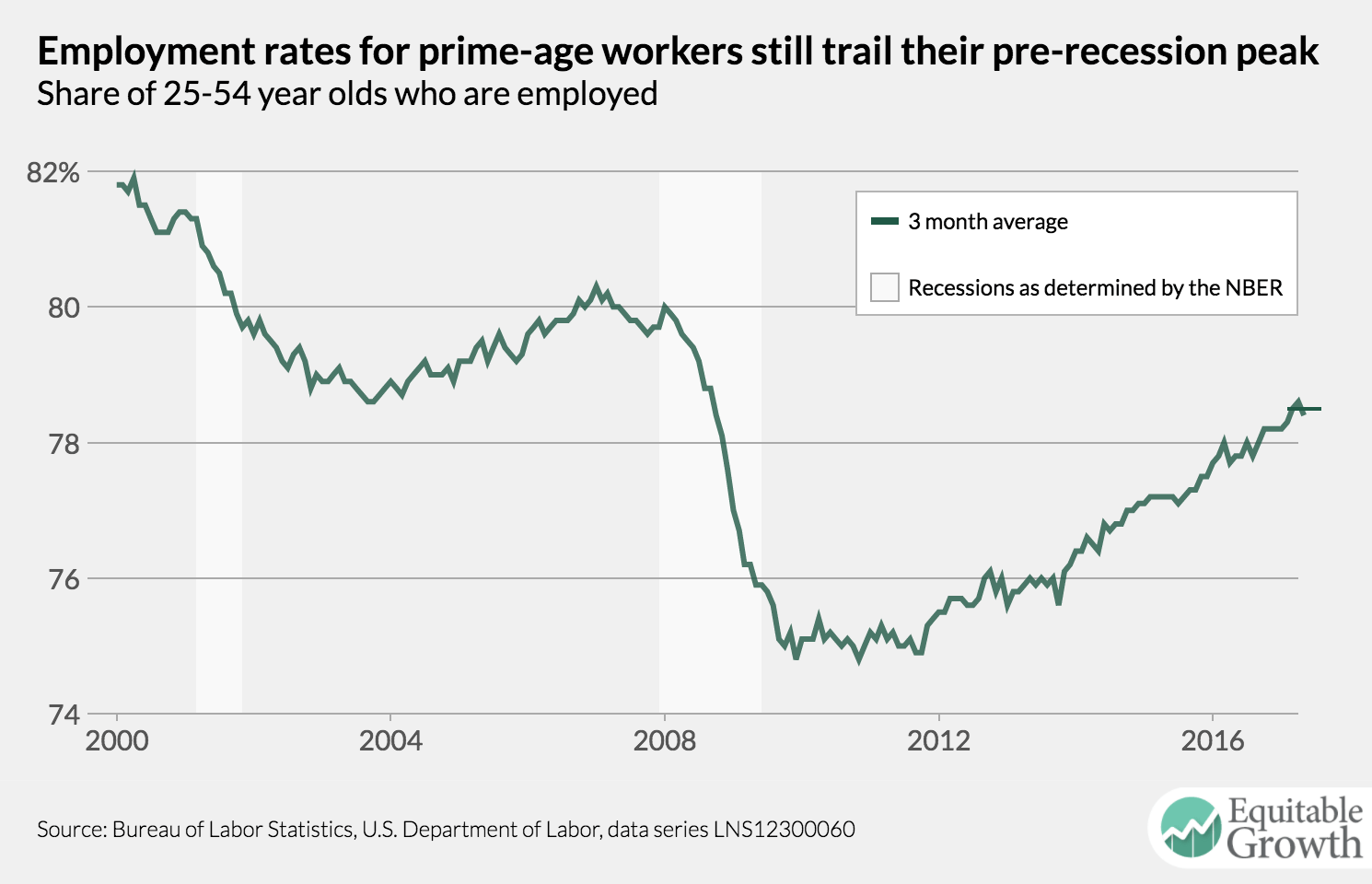Weekend reading: “Unstable incomes, uncertain world” edition
This is a weekly post we publish on Fridays with links to articles that touch on economic inequality and growth. The first section is a round-up of what Equitable Growth published this week and the second is the work we’re highlighting from elsewhere. We won’t be the first to share these articles, but we hope by taking a look back at the whole week, we can put them in context.
Equitable Growth round-up
Several central banks implemented previously unthinkable monetary policies during the Great Recession. How many of these tools will stick around? A new paper asks central bankers and academics just that question.
Bridget Ansel writes about a new study that uncovers a surprising performance enhancer for venture capital funds: hiring partners who have daughters.
New data on the U.S. labor market was released this morning from the U.S. Department of Labor in the form of the May Employment Situation Report. Check out five key graphs using data from the report.
Links from around the web
One part of President Trump’s proposed tax reform is a tax cut for pass-through business income. His administration is pitching it as a tax cut for small business, but Lily Batchelder of New York University Law School argues it’ll become a huge tax loophole. [nyt]
Is the German trade surplus with the United States an issue? Unlikely. But is the German trade surplus with the rest of the world a problem for the global economy? Adam Davidson argues that it is. [new yorker]
“Conversations about inequality often miss something essential, something that the families we met felt strongly: The financial problem they were most immediately focused on wasn’t about relative earnings or wealth. It was about their ability to create stable lives in our uncertain world.” Jonathan Morduch and Rachel Schneider write about their study of income volatility. [atlantic]
As behavioral economics incorporated insights from psychology into economics, a new line of thinking from Nobel Laureate and Yale University economist Robert Shiller called narrative economics takes insights from the humanities. [chicago booth]
In an interview with the Federal Reserve Bank of Minneapolis, University of California, Berkeley economist Hilary Hoynes talks about food stamps, the recessionary effects on labor market segments, and the importance of poverty research. [minneapolis fed]
Friday figure

Figure from “Equitable Growth’s Jobs Day Graphs: May 2017 Report Edition” by Equitable Growth

